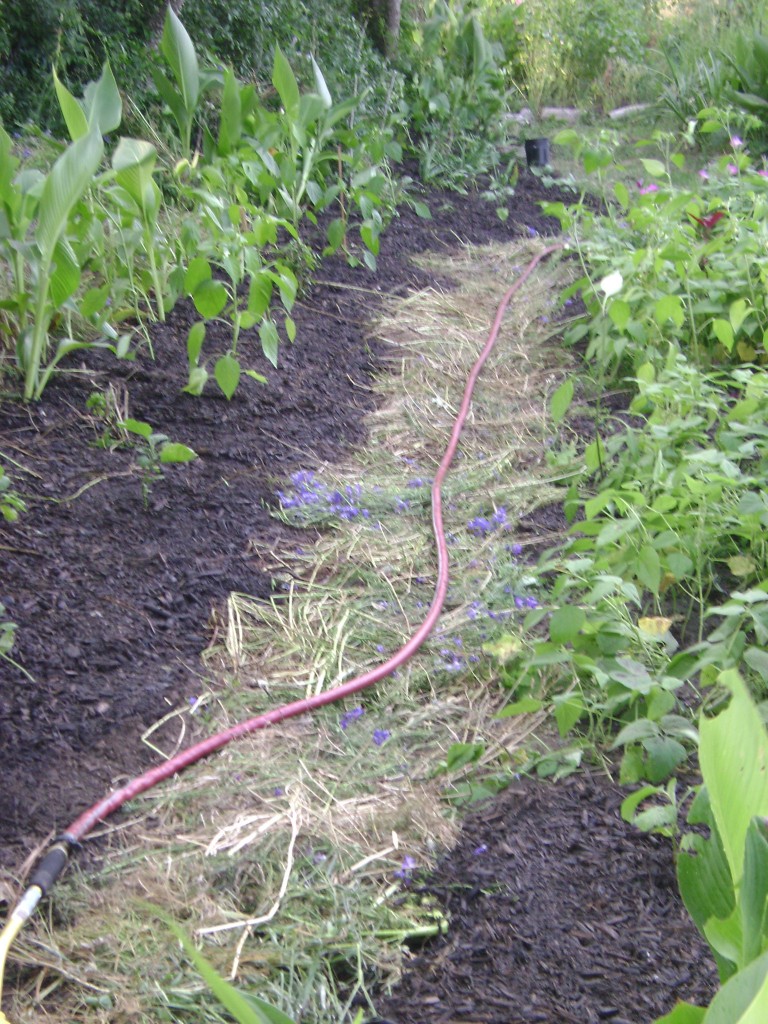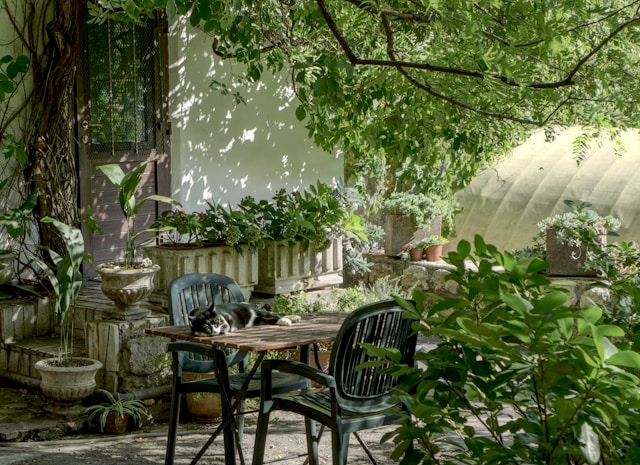Wildflower Mulching
Healthy abundance, the true gift of permaculture!
Permaculture is the road to becoming sustainable in all aspects of our lives. It stretches across our lifestyles, from building stronger communities, homes built to use natural resources like solar power and rainwater collection systems. While it may be a difficult endeavor for most of the human population, it can be simplified by focusing on our own backyards. It is here we can strive towards creating natural ecosystems within our own landscape and gardening. It is here where we can grow our own food in the most natural way. We can get higher yields with less effort by simply mimicking nature.
Natural gardening entails a complete life cycle where everything within the ecosystem works together. A good example of this is taking a look at an area of the garden where a wildflower patch was grown and left to naturalize. As the Wildflowers began to fade and go to seed they were simply laid down and left as mulch. Other perennials were underneath the wildflowers waiting for their day in the sun. Peppers and Eggplants, beans and petunias were planted directly in the wildflower mulch and then covered with compost. The wildflower mulch left in the walkway suppresses the weeds, help retain moisture and improves the microorganisms within the soil. The beauty of the whole system is that in the next season the wildflowers will sprout again and the whole cycle begins again.
Tropical plants being pruned and laid in walkways
As the gardening season progresses it becomes time for pruning, trimming and thinning out shrubs, trees, and plants. While most of this debris is splendid in the compost pile, much of it can be used to lay down in the garden walkways and paths. Again, we are suppressing weeds and retaining moisture, but with some debris as from tropical plants like Canna Lilies and Castor Bean plants you can create natural habitats for beneficial predators. Frogs, Toads, Lizards and Gardener Snakes will consume a whole host of harmful pests from the garden.
The important thing to remember in keeping the ecosystem in balance and for healthy fruit and vegetable crops always keep the green materials in the walkways and paths and the compost pile. Only mulch the top of the actual beds where your plants are growing with the brown debris. This will keep unwanted pests like slugs busy in the path and not in your crops. Once your beneficial predators are in place they will consume most of the garden pests. The pathways can then either be raked up and chopped after they dry to add to your beds or you can simply leave it all and keep layering the walkways with more green material.
Huge Castor Bean Leaf
Grow and Naturalize More Plants to Create More Organic Material
Just look at the tremendous size of a Castor Bean Leaf. Now imagine trimming them and laying them out in a walkway. It doesn’t take very many to go a very long way. Imagine as well how much organic matter this will add to your compost pile that is healthy green material.
Wildflowers and Herbs not only benefit and attract many pollinators to the garden, but they increase the organic material that goes back into your soil. Let them go free and naturalize in areas of your yard. Enjoy their beauty as well as their benefits.
Another wonderful tropical plant that needs to be left to naturalize is the Canna Lily. Not only do they work miracles in creating natural habitats for beneficial insects and amphibians, but they actually contain enzymes that improve your soil and compost pile. As they get thick and large, prune them and thin them out to lay in your paths and walkways throughout the garden.
Many grain crops work excellent for adding nutrients back into the earth and give an abundance of organic material for mulching and composting. Try something that grows well in your area. We enjoy growing Hopi Red Dye Amaranth. It reseeds freely and has naturalized throughout our gardens. It is very easy to pull up and lay back down in the walkways. It also serves well as an umbrella plant for inter-cropping among plants that appreciate some relief from the hot afternoon sun.
- Wild Dagga Motherwort Medicinal Herb - November 11, 2013
- Grow The Best Organic Lettuce - November 4, 2013
- Amish Hot Pepper Mustard - October 23, 2013

